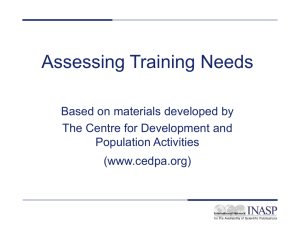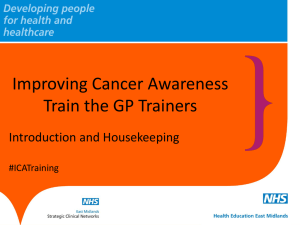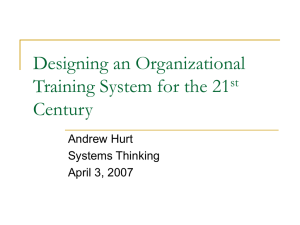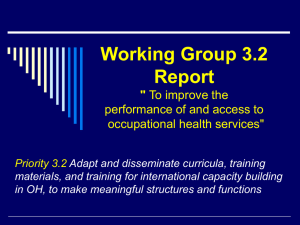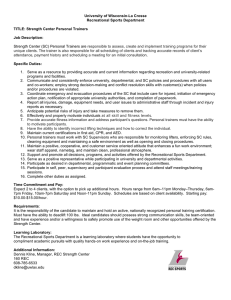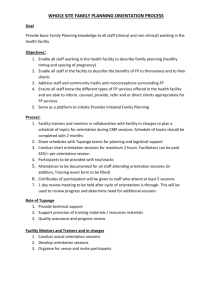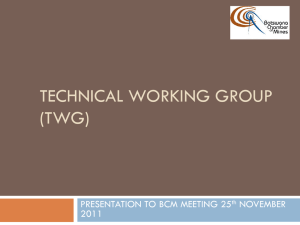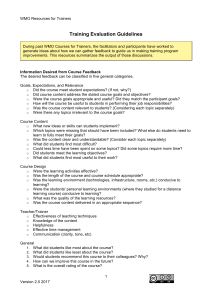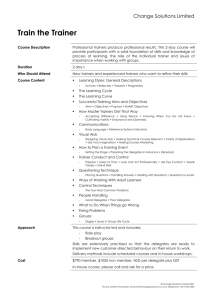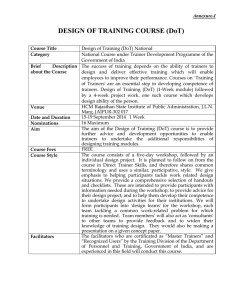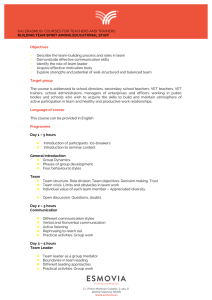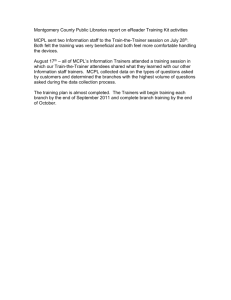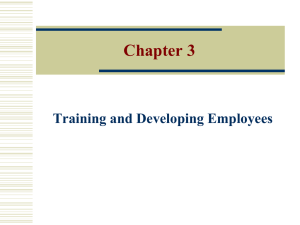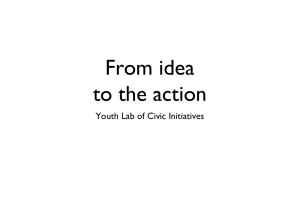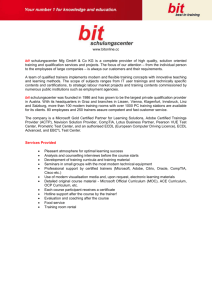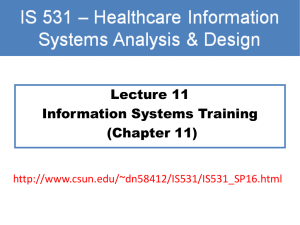Training Needs Assessment
advertisement
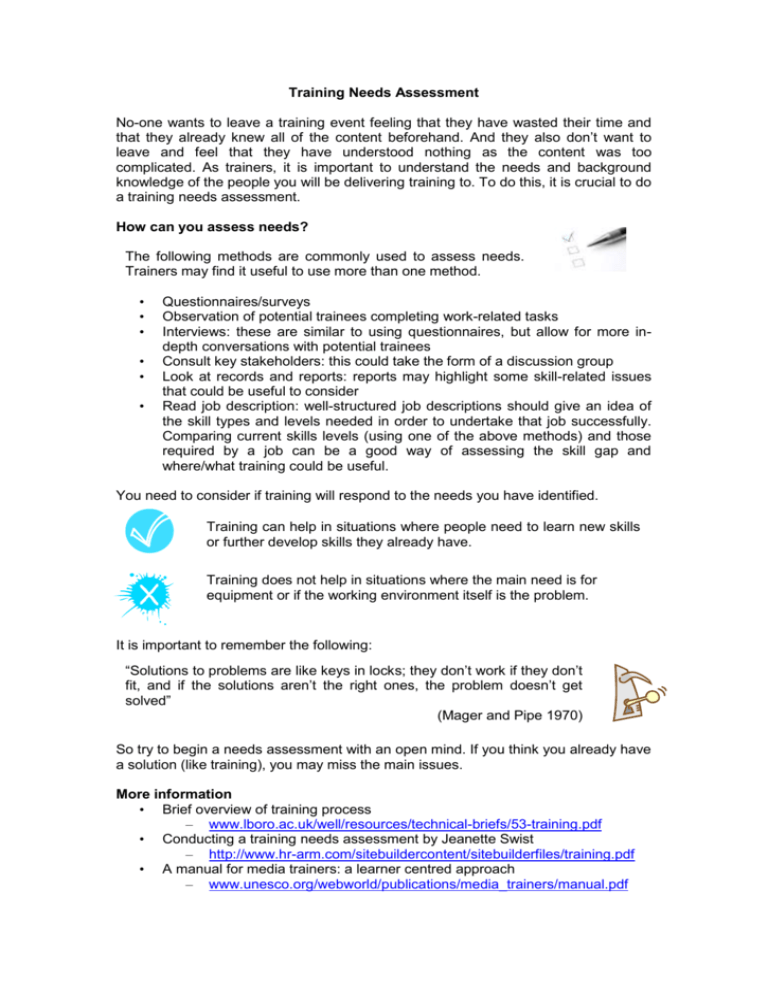
Training Needs Assessment No-one wants to leave a training event feeling that they have wasted their time and that they already knew all of the content beforehand. And they also don’t want to leave and feel that they have understood nothing as the content was too complicated. As trainers, it is important to understand the needs and background knowledge of the people you will be delivering training to. To do this, it is crucial to do a training needs assessment. How can you assess needs? The following methods are commonly used to assess needs. Trainers may find it useful to use more than one method. • • • • • • Questionnaires/surveys Observation of potential trainees completing work-related tasks Interviews: these are similar to using questionnaires, but allow for more indepth conversations with potential trainees Consult key stakeholders: this could take the form of a discussion group Look at records and reports: reports may highlight some skill-related issues that could be useful to consider Read job description: well-structured job descriptions should give an idea of the skill types and levels needed in order to undertake that job successfully. Comparing current skills levels (using one of the above methods) and those required by a job can be a good way of assessing the skill gap and where/what training could be useful. You need to consider if training will respond to the needs you have identified. Training can help in situations where people need to learn new skills or further develop skills they already have. Training does not help in situations where the main need is for equipment or if the working environment itself is the problem. It is important to remember the following: “Solutions to problems are like keys in locks; they don’t work if they don’t fit, and if the solutions aren’t the right ones, the problem doesn’t get solved” (Mager and Pipe 1970) So try to begin a needs assessment with an open mind. If you think you already have a solution (like training), you may miss the main issues. More information • Brief overview of training process – www.lboro.ac.uk/well/resources/technical-briefs/53-training.pdf • Conducting a training needs assessment by Jeanette Swist – http://www.hr-arm.com/sitebuildercontent/sitebuilderfiles/training.pdf • A manual for media trainers: a learner centred approach – www.unesco.org/webworld/publications/media_trainers/manual.pdf
